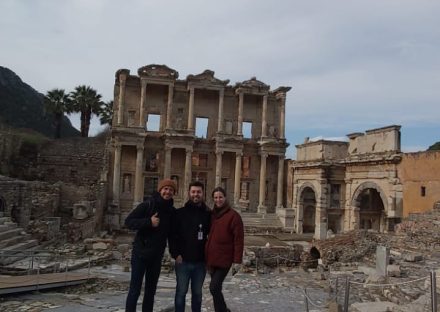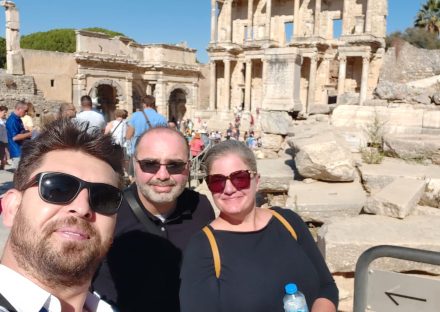Tour overview
Ephesus was one of the most important cities in the ancient world, located in the Aegean region of Anatolia (modern-day Turkey). The city was established in the 10th century BC by the Ionian Greeks and became a major center of trade and culture in the Mediterranean world.
The city underwent numerous transformations over the centuries, as it was ruled by various empires and civilizations, including the Greeks, Romans, Byzantines, and Ottomans. Its strategic location made it an important hub for commerce and communication, and it played a significant role in the spread of Christianity in the early years of the religion.
Today, the ancient city of Ephesus is one of the most well-preserved ancient cities in the world and a UNESCO World Heritage Site. Visitors can explore the ruins of the city and marvel at the impressive architectural features that have survived the test of time.
Some of the most notable highlights of the ancient city of Ephesus include:
- The Library of Celsus: This impressive structure was built in the 2nd century AD and served as a library that housed more than 12,000 scrolls.

- The Great Theatre: This massive theater could seat up to 25,000 spectators and was used for both theatrical performances and gladiatorial games.
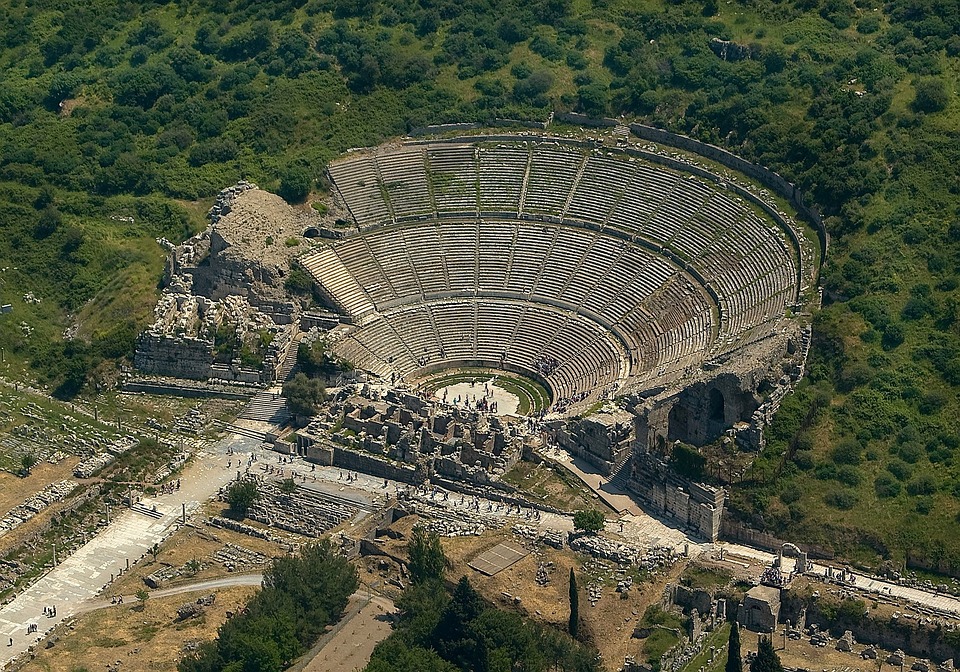
- The Temple of Artemis: This temple was one of the Seven Wonders of the Ancient World and was dedicated to the goddess Artemis.
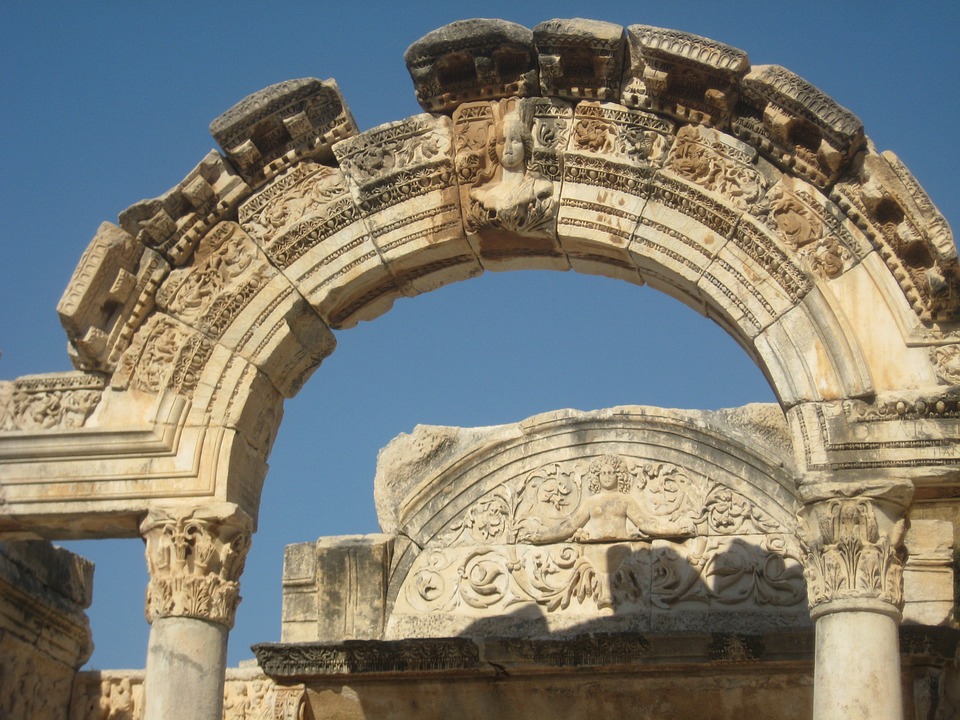
- The Terrace Houses: These elegant houses belonged to the wealthy residents of Ephesus and are adorned with beautiful frescoes, mosaics, and sculptures.
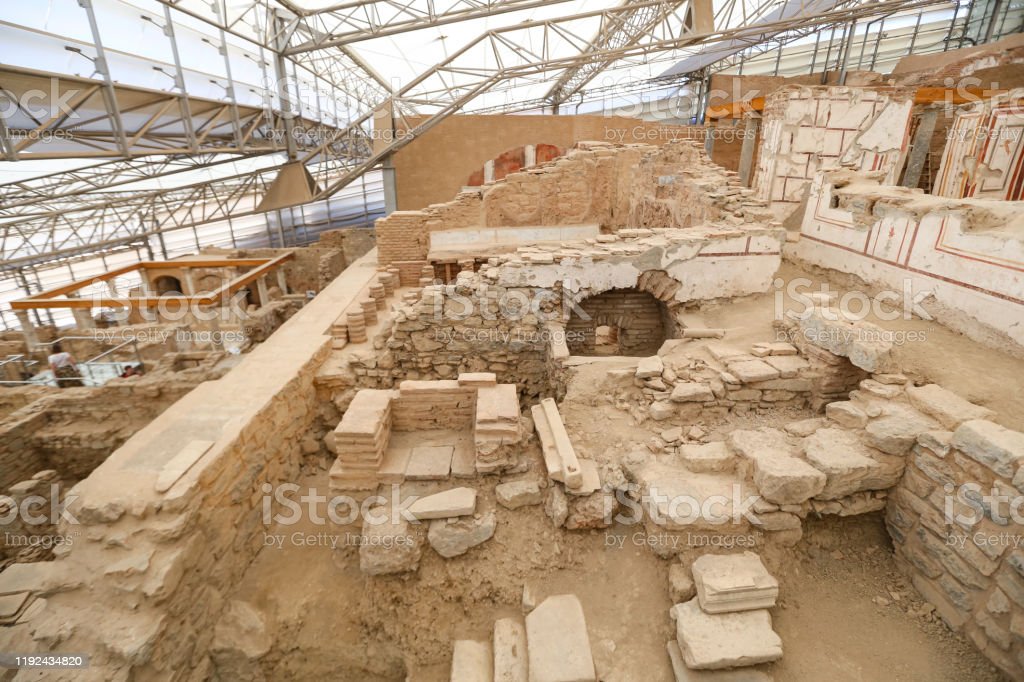
- The House of the Virgin Mary: This humble stone house is believed to be the final residence of the Virgin Mary and is a popular pilgrimage site for Christians.
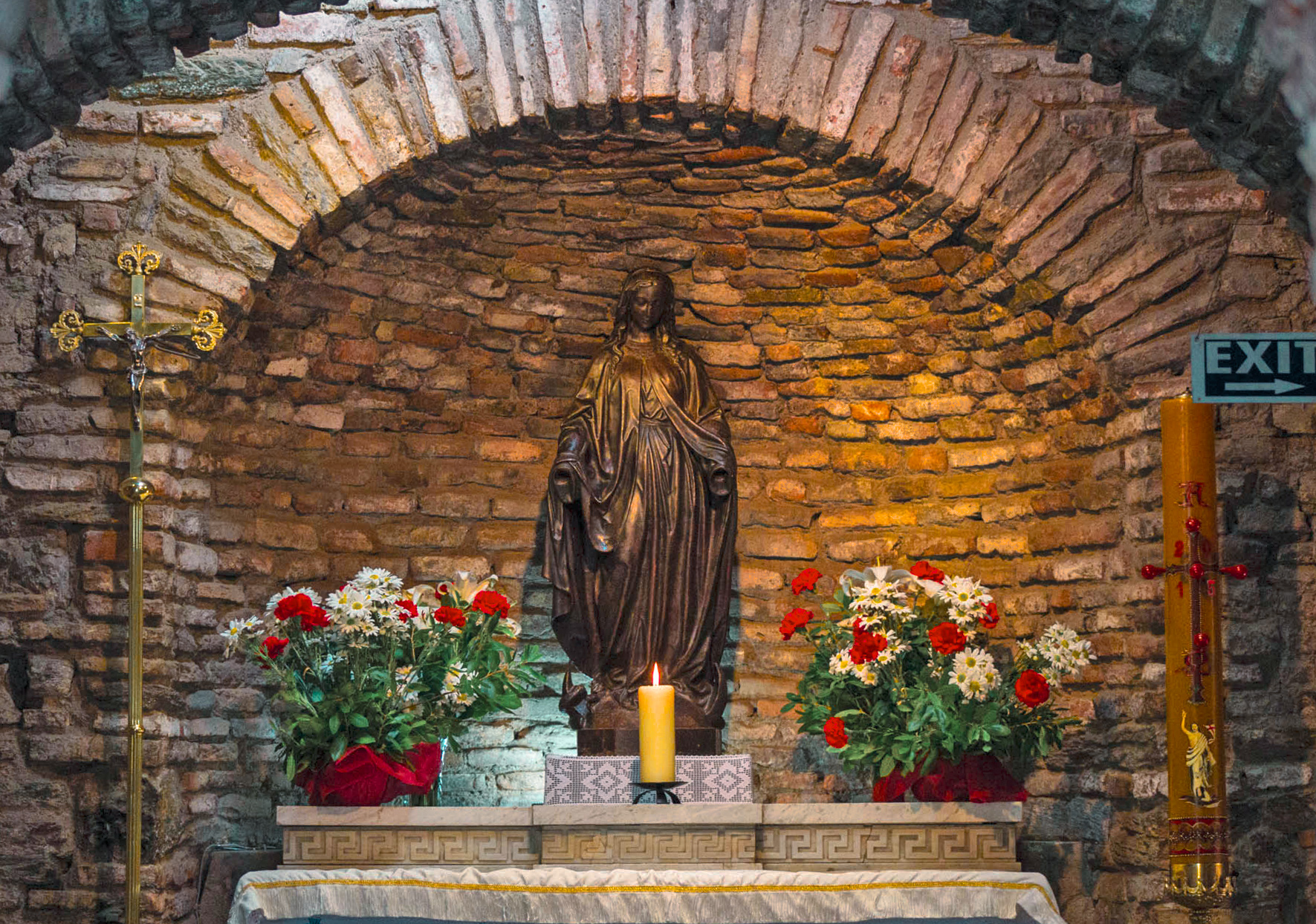
Visitors to the ancient city of Ephesus can also see a number of other interesting sites, including the Temple of Hadrian, the Temple of Serapis, and the Odeon. There are also several museums in the area that display artifacts and exhibits related to the history and culture of the ancient city.







